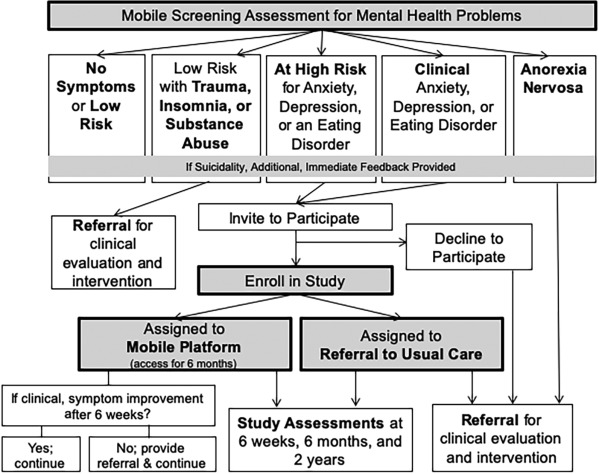Harnessing mobile technology to reduce mental health disorders in college populations: A randomized controlled trial study protocol

Abstract
About a third of college students struggle with anxiety, depression, or an eating disorder, and only 20–40% of college students with mental disorders receive treatment. Inadequacies in mental health care delivery result in prolonged illness, disease progression, poorer prognosis, and greater likelihood of relapse, highlighting the need for a new approach to detect mental health problems and engage college students in services. We have developed a transdiagnostic, low-cost mobile mental health targeted prevention and intervention platform that uses population-level screening to engage college students in tailored services that address common mental health problems. We will test the impact of this mobile mental health platform for service delivery in a large-scale trial across 20+ colleges. Students who screen positive or at high-risk for clinical anxiety, depression, or an eating disorder and who are not currently engaged in mental health services (N = 7884) will be randomly assigned to: 1) intervention via the mobile mental health platform; or 2) referral to usual care (i.e., campus health or counseling center). We will test whether the mobile mental health platform, compared to referral, is associated with improved uptake, reduced clinical cases, disorder-specific symptoms, and improved quality of life and functioning. We will also test mediators, predictors, and moderators of improved mental health outcomes, as well as stakeholder-relevant outcomes, including cost-effectiveness and academic performance. This population-level approach to service engagement has the potential to improve mental health outcomes for the millions of students enrolled in U.S. colleges and universities.